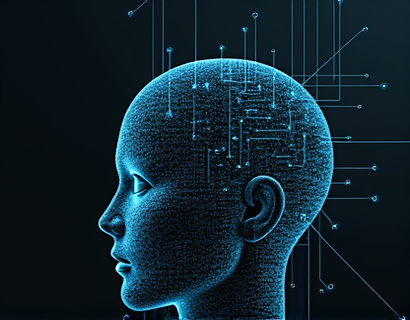Transforming Healthcare through AI-Powered Chat Interfaces: Enhancing Access to ICU Knowledge
The integration of artificial intelligence in healthcare, particularly in Intensive Care Units (ICUs), represents a significant leap forward in patient care and healthcare management. An AI-driven chat interface is revolutionizing the way information is accessed and communicated within critical care settings. This technology provides real-time insights and streamlines communication for patients, caregivers, and healthcare professionals, ultimately leading to more informed decision-making and improved outcomes.
The Need for Enhanced Communication in ICUs
ICUs are environments where every moment counts, and accurate, timely information can be the difference between life and death. Traditional methods of information dissemination, such as manual record-keeping and verbal communication, are prone to errors and inefficiencies. An AI-powered chat interface addresses these challenges by offering a centralized, reliable source of information. This technology ensures that all stakeholders have instant access to the latest data, reducing the risk of miscommunication and enhancing the overall quality of care.
Real-Time Insights for Better Decision-Making
The AI chat interface provides up-to-the-minute updates on patient conditions, treatment protocols, and medical research. For healthcare professionals, this means they can make decisions based on the most current information available. For instance, if a patient's condition changes rapidly, the AI can quickly provide the latest guidelines for treatment adjustments, ensuring that the medical team is always informed and prepared. This real-time access to critical data is invaluable in the fast-paced environment of an ICU.
Enhanced Patient and Caregiver Communication
Patients and their caregivers often feel overwhelmed by the complexities of ICU care. An AI chat interface simplifies this by providing clear, concise information in an easily understandable format. Patients can ask questions about their condition, treatment options, and expected outcomes, while caregivers can receive updates on a loved one's status without needing to constantly consult medical staff. This empowerment through information helps reduce anxiety and fosters a more collaborative approach to care.
Streamlining Workflows for Healthcare Professionals
For healthcare professionals, the AI chat interface serves as a powerful tool to manage their workload more efficiently. By automating routine information requests, such as lab results or medication schedules, medical staff can focus more on patient care. The AI can also alert healthcare providers to critical changes in patient status, ensuring prompt attention to emerging issues. This not only improves operational efficiency but also reduces the cognitive load on already stressed medical teams.
Comprehensive Knowledge Base
The AI chat interface is built on a robust knowledge base that encompasses a wide range of topics relevant to ICUs. This includes detailed information on various medical conditions, treatment protocols, pharmacology, and the latest research findings. The AI can provide summaries, detailed explanations, and even link to full research articles for those seeking in-depth knowledge. This comprehensive resource ensures that healthcare professionals have access to the information they need, when they need it.
Key Features of the AI Chat Interface
- Real-Time Updates: Continuous integration of the latest patient data and medical research.
- Personalized Information: Tailored responses based on user roles and specific patient needs.
- Multilingual Support: Accessibility for a diverse patient and caregiver population.
- Integration with Electronic Health Records (EHR): Seamless data exchange for accurate and up-to-date information.
- User-Friendly Interface: Intuitive design for easy navigation and quick access to information.
Improving Patient Outcomes Through Informed Decisions
The ultimate goal of the AI chat interface is to enhance patient outcomes by ensuring that everyone involved in the care process has access to accurate, timely information. By empowering patients and caregivers with knowledge, and supporting healthcare professionals with real-time data, the AI chat interface contributes to more informed decision-making. This collaborative approach not only improves the quality of care but also enhances patient satisfaction and trust in the healthcare system.
Challenges and Considerations
While the benefits of an AI-powered chat interface in ICUs are significant, there are challenges to consider. Ensuring the accuracy and reliability of the information provided is paramount. Continuous updates and rigorous validation processes are necessary to maintain the highest standards of medical accuracy. Additionally, addressing privacy and security concerns is crucial, as sensitive patient data is involved. Compliance with regulations such as HIPAA is essential to protect patient information.
Future Prospects and Innovations
The future of AI in healthcare is promising, with ongoing advancements in natural language processing, machine learning, and data analytics. Future iterations of the AI chat interface may include more sophisticated predictive analytics, enabling proactive management of patient conditions. Integration with wearable devices and remote monitoring systems could further enhance the AI's ability to provide real-time insights. As technology continues to evolve, the potential for AI to transform healthcare, particularly in critical care settings, remains vast.
Conclusion
The AI-powered chat interface represents a significant advancement in healthcare technology, particularly for ICUs. By providing real-time, accurate information to all stakeholders, it enhances communication, supports informed decision-making, and ultimately improves patient outcomes. As this technology continues to develop, it holds the promise of making critical care more efficient, effective, and patient-centered.










































